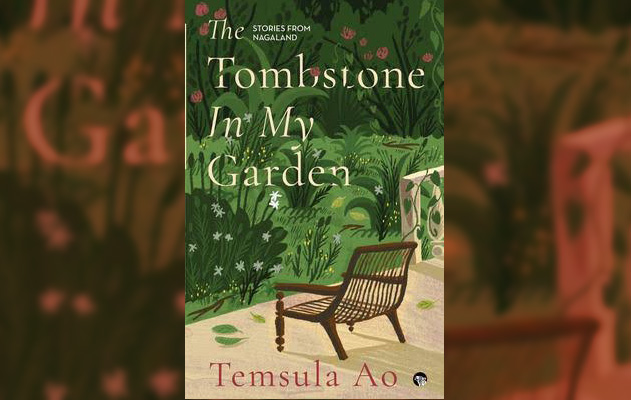There is something dark about Temsula Ao’s collection of five short stories in The Tombstone In My Garden. This is quite unlike the author’s earlier short story collections, particularly These Hills Called Home, which tell of how ordinary Nagas fought and came to terms with unspeakable violence in their lives. The magic moments of resistance and resilience in this struggle, and the steadfast belief in the ultimate triumph of the light of goodness, is distressingly absent in the present collection.
Hence The Platform is about a Bihari porter, Nandu, at Dimapur railway station. This poor but proud man, one desolate winter finds an abandoned boy child on the platform and brings him home. When the boy’s family could not be traced, Nandu decides to adopt the child.
One day while bathing the child, he discovers the boy is circumcised, therefore a Muslim and probably Bangladeshi. He hides his discovery sensing trouble and the father and son live a normal life till the boy reaches adolescent years. Bad company brings the reluctant boy to a brothel one day, and there his circumcision becomes known, and even the pimps and prostitutes seem to share the bitterness Nandu suspected, and the boy is lynched. Nandu also does not just lose a son, but ends up excommunicated by his friend and community forcing him to migrate elsewhere in utter defeat and misery. Can love and human bondage be so fragile?
Another story, The Saga of a Cloth, is intense. It tells of a woman’s revenge. Repasongla, who grew up in an Ao village, while a maiden was courted by two boys, Lolen and Imdong. She rejects Lolen and dates Imdong. Lolen does not take it well, and one night rapes her. Her lover Imdong meantime dies in an accident during a village fishing expedition. Some suspect Lolen caused the accident. Repasongla decides on revenge, and marries her rapist. Her moment arrives when her husband dies in one of his drunken brawls at a bar. She stealthily places the tassel of her supeti on her husband’s chest before burial. Supeti is a pre-prepared funeral cloth for every person, and even touching a wife’s supeti is believed to be a great dishonour for any husband. A lifetime of living with a brute, suffering his abuses all the while, just for this revenge, is a strange choice. The story does however give an intimate glimpse into the life of an Ao Naga village.
The story which shares the title of this collection, is again of strained relationships spanning two generations. An Englishman tea planter, marries a dark curly haired plantation worker. For some reason, they resent the mixed blood of their children and indeed, their children undergo varying degrees of social ostracism in their schools and colleges. Strangely, the Englishman father insists on an arranged marriage for his daughter Lily Anne, the protagonist of this story. She marries an Anglo-Indian son of another Englishman planter. Lily is never happy with her cold and brutish husband. When he dies, his tombstone in her garden becomes her albatross. Only removing and relocating it elsewhere brings her peace in her old age.
There are two other stories Snow-Green and The Talking Tree. In these, plants as sentient beings, capable of love, anger and hate. Snow-Green is about a lily which refuses to bloom when replanted in a vase and longs for the openness of the garden, and The Talking Tree is of a rebellion by the plant world against human loggers. In this world too, the familiar oppressive atmosphere over lost freedom is evident. Perhaps, these stories are the author’s subconscious sketch the Naga’s nostalgia for a traditional world now being left behind.
The review was first carried in The Telegraph Kolkata under a different heading. The original can be read here https://www.telegraphindia.com/culture/books/losing-a-beloved-world-stories-in-temsula-aos-book-are-a-subconscious-sketch-of-the-naga-nostalgia/cid/1868118












